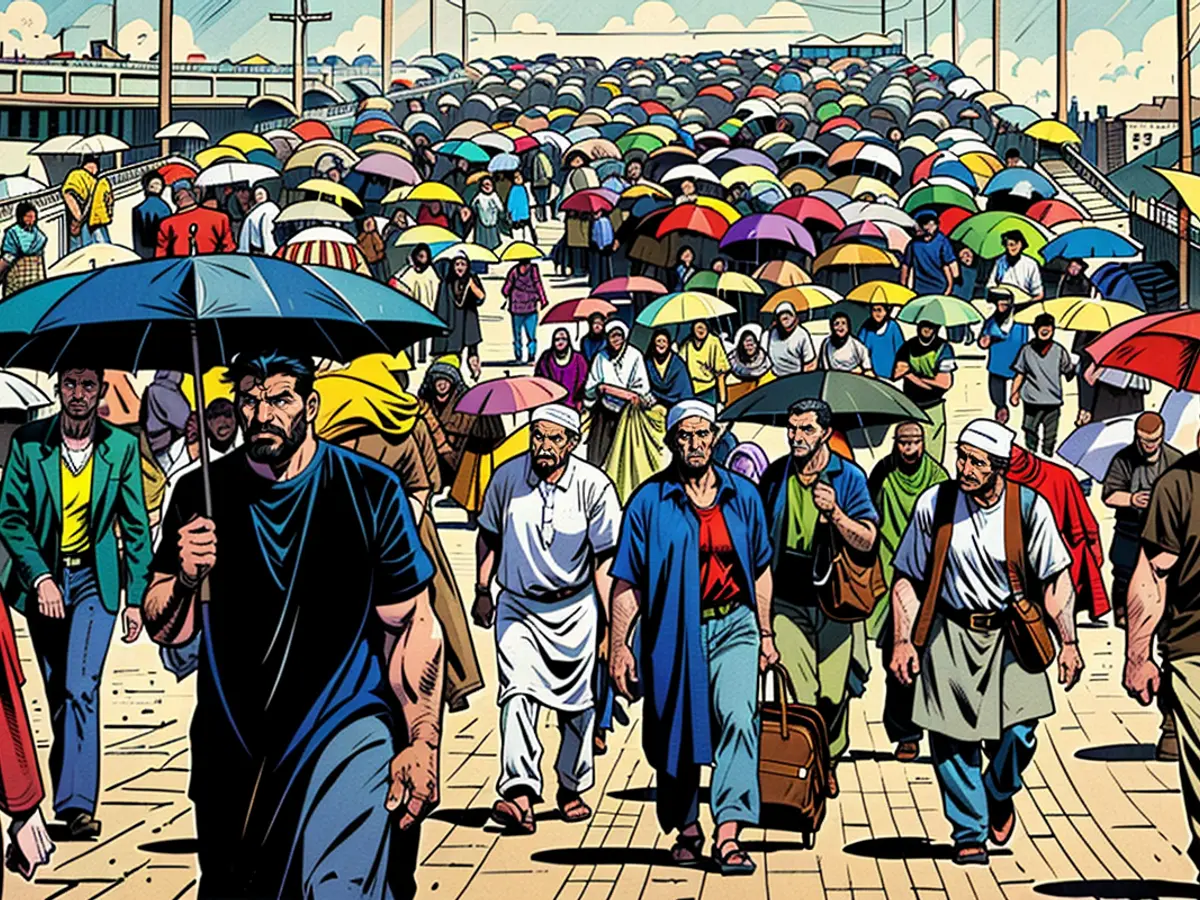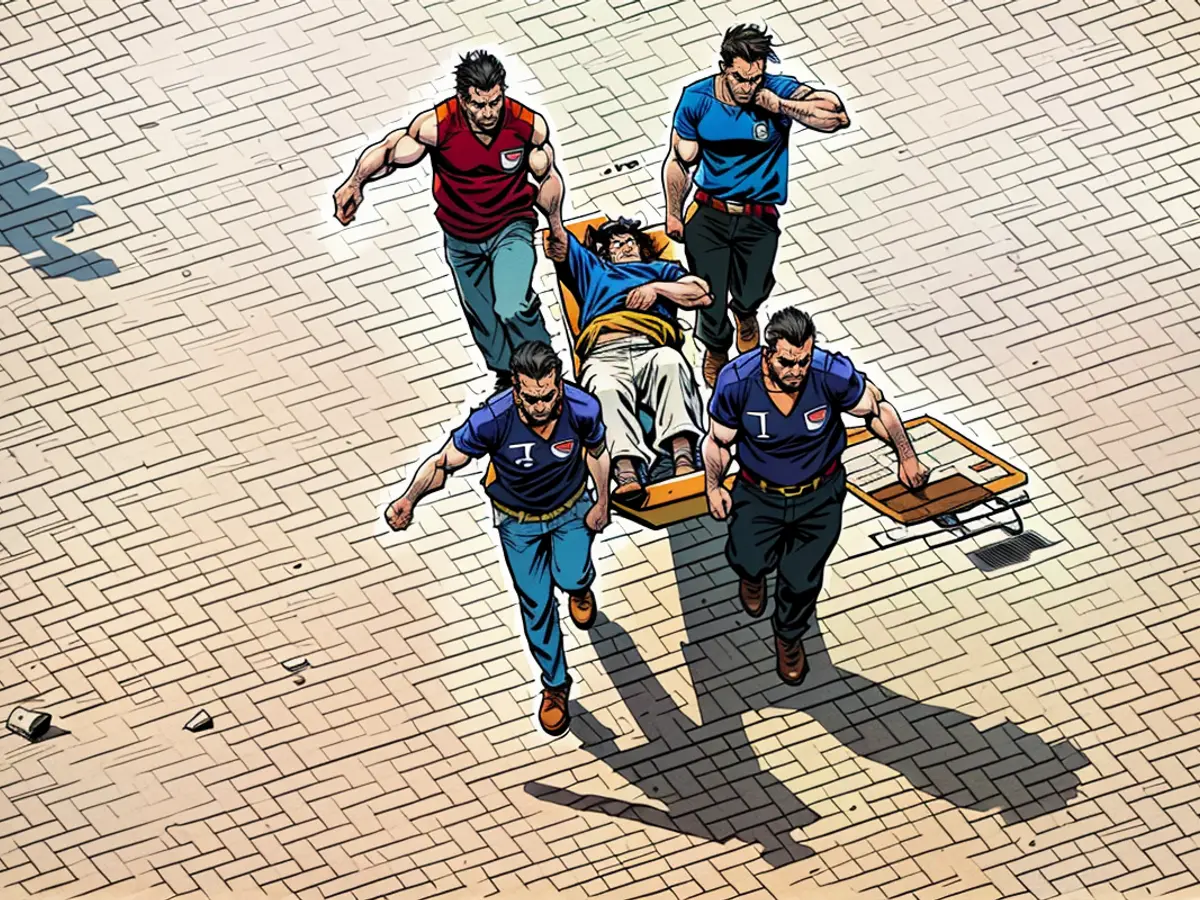Insufficient medical staff cannot manage the heat-stricken pilgrims, report witnesses to CNN, with the casualty count escalating during Hajj.
Participants described fainting pilgrims walking past covered bodies as a regular occurrence during the religious event in Mecca.
This year's Hajj ceremony has been conducted under harsh climate conditions, reporting consistent temperatures well above average. The precise number of fatalities is uncertain and is anticipated to increase significantly, as each nation independently announces the deaths of its citizens.
Furthermore, authorities are only aware of registered pilgrims who traveled to Mecca as part of their country's designated quota; additional deaths among unregistered pilgrims are suspected.
Forty-year-old Zirrar Ali, who returned to London from the pilgrimage with his 70-year-old father, reported to CNN that authorities failed to provide sufficient water, shade, or medical aid during his week-long stay.
"It felt like there weren't enough medics, so they were waiting for things to reach a critical point before intervening," Ali stated, noting that collapsing individuals recurred.
"I couldn't concentrate on my pilgrimage with all the suffering I saw," he added.
Ali's comments resonated with another witness, 44-year-old Ahmad from Indonesia, who told CNN he observed numerous pilgrims succumbing to the heat-related illnesses.
"On our journey home, I saw many pilgrims who perished. Every few hundred meters, a body lay covered with an ihrom [white fabric] cloth," he said.
"Every instance of water distribution from local residents or certain groups was immediately overwhelmed by pilgrims," he added, reporting the absence of health workers or ambulances along the road.
Both pilgrims criticized the inadequate organization and infrastructure of this year's ceremony, especially for those who traveled independently, not as part of licensed tour groups.

Saudi Arabia mandates each pilgrim to acquire one of the 1.8 million available licenses to lawfully access Mecca. These licenses can amount to several thousand US dollars. Unlicensed pilgrims typically do not travel in air-conditioned tour buses with easy access to water and food supplies.
Despite the luxuries for some, all pilgrims spend most of their time walking outdoors in intense heat. According to Ali, a minimum of five hours of walking each day is common, with many pilgrims spending twelve hours outside daily.
For him, the prolonged walking is a fundamental aspect of the Hajj experience, but he believes the Saudi government should have provided more support.
"Spending eight hours to travel from A to B – that's part of being patient – but nobody informed us that a ten-hour water shortage is part of Hajj; we should be offering comfort and taking care of ourselves," he said.
CNN has reached out to Saudi authorities regarding the alleged insufficient response to this year's heat and has yet to receive a reply.
Over 1.8 million individuals participated in this year's Hajj, one of the world's biggest religious events, according to the Saudi General Authority for Statistics.
While pilgrim deaths are not unprecedented (over 200 occurred last year), this year's gathering is being held under exceptionally high temperatures.
The date of Hajj varies each year based on the Islamic calendar, and this year it coincided with June, one of the hottest months in the kingdom. It occurs two months and ten days after Ramadan concludes, during the Islamic month of Dhul-Hijjah. Because the Islamic calendar is lunar and shorter than the Gregorian calendar, the Gregorian date of Hajj shifts slightly year to year.

Read also:
The world watches as the number of casualties in the Middle East during Hajj continues to rise, with many attributing the escalating situation to insufficient medical staff. Amidst the heat, pilgrims from various nations call for more resources and aid, urging authorities to better manage the conditions in Mecca.







